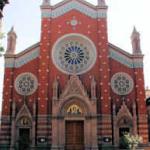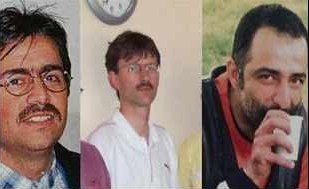Ministry of Justice allows two people to be tried by the controversial Article 301 of the Penal Code, titled "insulting Turkishness", following allegations of missionary activities to promote Protestantism.
Permission of the Ministry is required in cases arising from Article 301, as the government made an amendment to the article following criticism that the courts used it to silence dissident comments.
Recently, the ministry also gave way to trials of Temel Demirer, who blamed this specific law for Turkish Armenian journalist Hrant Dink's murder and 10 protesters who acted against the conditions in prisons.
Nonetheless, missionary activities or promoting religious beliefs are not defined as crimes in the Penal Code.
Upon the permission of the ministry, Silivri Court continued the trial of Hakan Tastan and Turan Topal on February 24th. The case is postponed to May 28th. Until then, the court will asses the claims of complainants' lawyers for a wider investigation to decide if the missionary activities in question were executed in an organized manner, or not.
The two defendants are also accused of "inciting hatred" and "illegally gathering information". Lawyers, who belong to Buyuk Hukucular Birligi, an association that is run by Kemal Kerincsiz, represent the complainants. On the other hand Kerincsiz, who made his name with nationalist protests against intellectuals and minority members is among the defendants in Ergenekon case.
Another Ergenekon defendant, Sevgi Erol of the Turkish Orthodox Chuch –a fraudulent organization- had applied to intervene to the case, but the court rejected her claim.
Previous prosecutor of the case demanded the acquittal of the accused, quoting the constitutional protection "of persons' freedom of living according to one's faith and conscience".
The indictment alleges that the two defendants distributed bibles and made speeches deeming Islam and military services; trying to organize in schools.(EÖ/EÜ)












